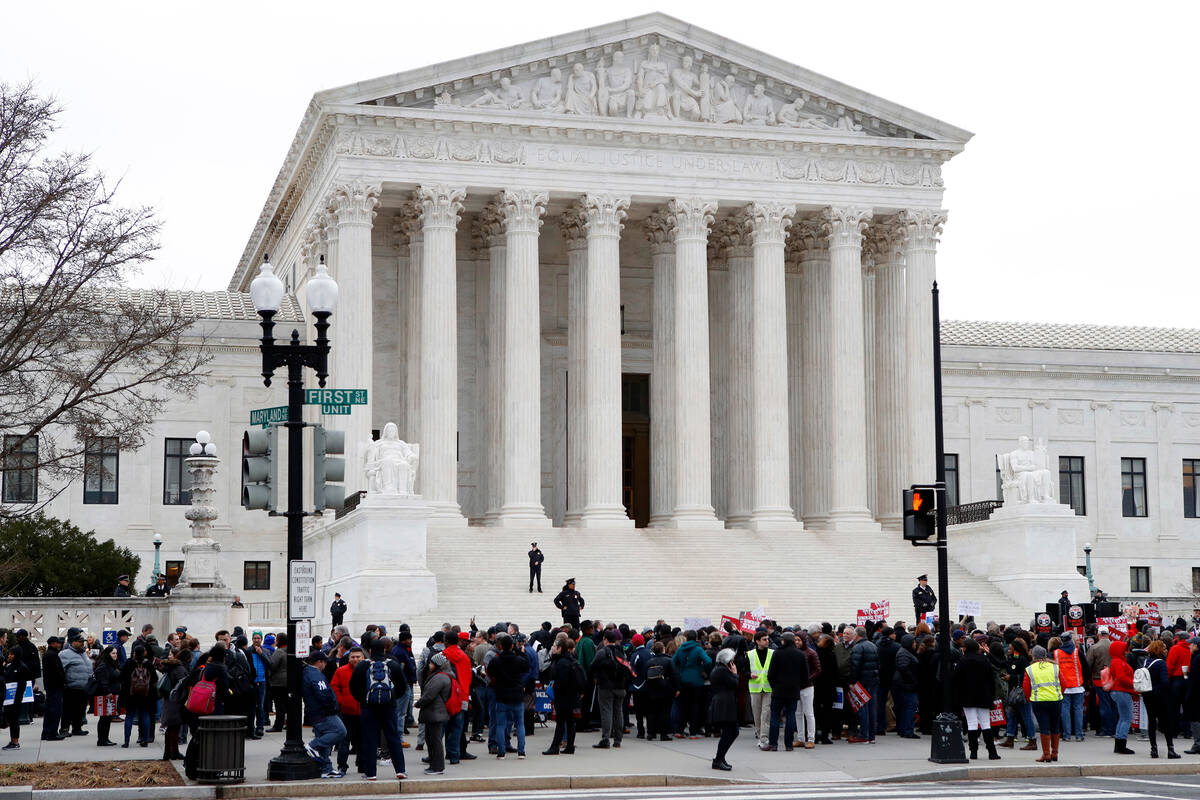EDITORIAL: Free speech and state regulation of ‘modern public square’
Supreme Court Justice Louis Brandeis wrote nearly a century ago, “If there be time to expose through discussion, the falsehoods and fallacies, to avert the evil by the processes of education, the remedy to be applied is more speech, not enforced silence.”
The justice’s observation — that the answer to controversial speech is more speech — has been lost on cancel culture progressives. But its logic also eludes those on the right who believe the antidote for censorship is more censorship.
On Monday, the Supreme Court heard arguments in perhaps the most important First Amendment case of the term. At issue are state laws in Florida and Texas meant to address the silencing of conservatives by social media platforms. The Texas law bans sites from “removing content based on a user’s viewpoint,” The New York Times reported. “Florida’s prevents the platforms from permanently barring candidates for political office in the state.”
The laws stem from concerns that many social media companies were targeting right-wing posters with policies designed to discourage “misinformation.”
The primary problem with the legislation passed in Texas and Florida is that it targets private companies rather than government actors. The First Amendment restricts the public sector. It doesn’t prohibit individuals or companies from making internal decisions about content. The social media executives who make the rules have indeed shown time and again that they have obvious editorial biases — witness Google’s recent boondoggle with its left-leaning Gemini AI — but in a free society they have a right to set their own standards.
“The concept that government may restrict the speech of some elements of our society in order to enhance the relative voice of others is wholly foreign to the First Amendment,” Justice Brett Kavanaugh read during oral arguments from a 1976 campaign finance decision.
Chief Justice John Roberts seemed to agree with Justice Kavanaugh. “I wonder,” he said, “since we’re talking about the First Amendment, whether our first concern should be with the state regulating what, you know, we have called the modern public square.”
Indeed, how would lawmakers in Texas and Florida react if a blue state passed legislation forcing a conservative social media platform to promote progressive content?
Yes, many social media platforms lean left. We saw this with their suppression of views regarding COVID. But those who oppose this reality should advocate for more free-wheeling debate rather than demand that states strip private companies of their right to exercise editorial discretion. That amounts to tearing up the First Amendment under the guise of saving it.




























